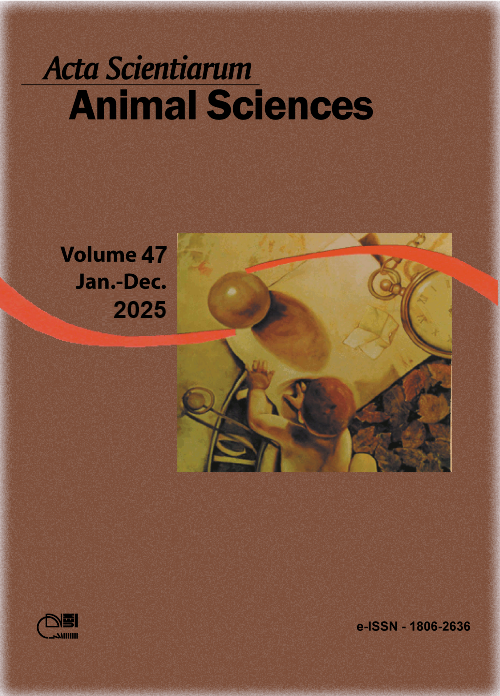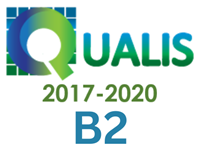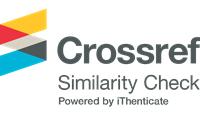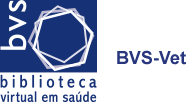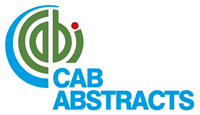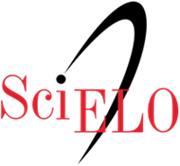Assessing strategy to improve dairy production and milk quality under smallholder dairying: Evidence from Ethiopia
Abstract
Little information exists on effectiveness of the approach in the intervention programme delivered to smallholder dairy farmers. A comparative study was conducted to assess milk production and composition in two districts (Doyogena project area and Angacha as a control) and the associated dairy intervention. Data were collected through household survey and milk testing. The average daily milk yield of crossbred dairy cows was 6.91±1.14 litres, which was significantly (p < 0.05) different across districts. The overall mean fat, solids-not-fat, lactose, salts, protein, and total solids (TS) contents of crossbred cows’ milk were 4.71±0.83, 8.85±0.36, 4.87±0.19, 0.72±0.03, 3.23±0.13 and 13.55±0.19 percent, respectively. The milk composition was significantly (p < 0.05) different across the study areas. Milk fat content is higher than the Ethiopian standard (ES); protein is also comparable. The major constraints for dairy production in the study areas were, in descending order, feed shortage in the dry season, land scarcity, lack of improved breeds, market access, and disease prevalence. To make livestock programs more impactful, strong extension and an integrated approach that encompasses improved feeds, breeding, marketing, and better health management are crucial to alleviate the diverse constraints of smallholder dairying while enhancing productivity and the associated food and nutrition security and livelihoods.
Downloads
References
Abonesh, T., Abebe, N., & Gebermedihin A. (2021). Building livelihoods and resilience to climate change in East & West Africa: Agricultural Research for Development (AR4D) for large-scale implementation of Climate-Smart Agriculture. CGIAR/ILRI. Retrieved from https://cgspace.cgiar.org/server/api/core/bitstreams/2128bb3b-e471-4186-a6dd-b5c710b4270b/content
Adesogan, T. A., & Dahl, G. E. (2020). MILK symposium introduction: dairy production in developing countries. Journal of Dairy Science, 103(11), 9677-9680. DOI: https://doi.org/10.3168/jds.2020-18313
Aysheshim, B., Beyene, F., & Eshetu, M. (2015). Handling, processing and marketing of cow milk in urban and peri urban area of Dangila Town, Western Amhara Region, Ethiopia. Global Journal of Food Science and Technology, 3(3), 159-174.
Balehegn, M., Duncan, A., Tolera, A., Ayantunde, A. A., Issa, S., Karimou, M., … Adesogan, A. T. (2020). Improving adoption of technologies and interventions for increasing supply of quality livestock feed in low- and middle-income countries. Global Food Security, 26, 100372. DOI: https://doi.org/10.1016/j.gfs.2020.100372
Bekuma, A., Fita, L., & Galmessa, U. (2022). Breeding practices, reproductive and productive performance of dairy cows: The case of West Wollega Zone, Gimbi District, Ethiopia. Journal of Fertilization: In Vitro - IVF-Worldwide, Reproductive Medicine, Genetics & Stem Cell Biol, 10(1), 1000002. DOI: https://doi.org/10.35248/2375-4508.22.S1.002
Beriso, K., Tamir, B., & Feyera, T. (2015). Characterization of smallholder cattle milk production system in Aleta Chukko District, Southern Ethiopia. Advances in Dairy Research, 3(1), 1000132. DOI: https://doi.org/10.4172/2329-888X.1000132
Capper, J. L. (2012). Reducing losses throughout dairy production. In Y. Garcia, S. Catt, & M. Heward (Eds.), Dairy research foundation (p. 7-20). Sydney, AU: The University of Sydney.
Debela, G. T., Eshetu, M., & Regassa, A. (2015). Physico-chemical qualities of raw cow milk in Ethiopia. The case of Borana zone, Yabello District. Global Journal of Dairy Farming and Milk Production, 3, 86-91.
Dehinenet, G., Mekonnen, H., Ashenafi, M., & Emmanuelle, G. (2013). Determinants of raw milk quality under a smallholder production system in selected areas of Amhara and Oromia National Regional States, Ethiopia. Agriculture and Biology Journal of north America, 4(1), 84-90. DOI: https://doi.org/10.5251/abjna.2013.4.1.84.90
Demeke, T. (2020). Characterization of reproductive and productive performance of indigenous and crossbreed dairy cows in Angot District, North Wollo Zone, Ethiopia. International Journal of Animal Science and Technology, 4(3), 62-69. DOI: https://doi.org/10.11648/j.ijast.20200403.12
Desyibelew, W., & Wondifraw, Z. (2019). Evaluation of Milk Composition in Zebu × HF Crossbred Dairy Cows in Different Seasons and Stage of Lactations in Amanuel Town, Ethiopia. Journal of Agricultural Science and Food Research, 10(1), 255. DOI: https://doi.org/10.35248/2593-9173.19.10.255
Fikrineh, N., Estefanos, T., & Tatek, W. (2012). Microbial quality and chemical composition of raw milking the Mid-Rift Valley of Ethiopia. African Journal of Agricultural Research, 7(29), 4167-4170. Retrieved from https://academicjournals.org/journal/AJAR/article-abstract/810D5BC35550
Didanna, H. L., Wossen, A. M., Worako, T. A., & Shano, B. K. (2018). Factors influencing intensification of dairy production systems in Ethiopia. Outlook on Agriculture, 47(2), 133-140. DOI: https://doi.org/10.1177/0030727018770
Duguma, B., Tegegne, A., & Hegde, B. (2012). Smallholder livestock production system in Dandi District, Oromia Regional State, central Ethiopia. Global Veterinaria, 8(5), 472-479.
Effa, K., Alemayehu, M., Wondatir, Z., Hunde, D., Assefa, G., & Kitaw, G. (2016). Achievements, status and prospects in dairy research and development. Ethiopian Journal of Agricultural Science, (Spec.), 51-65.
Ethiopian Standard [ES]. (2023). Ethiopian standards. Catalogue. Addis Ababa, ET. Retrieved from https://www.ethiostandards.org/2023-ethiopian-standard-ces-es-catalogue
Fekade, N., & Mekasha, Y. (2016). Evaluation of production performances versus feeding practices in urban and secondary town dairy production systems in adama milk shed, Oromia National Regional State, Ethiopia. Academy of Agriculture Journal, 1(1). DOI: https://doi.org/10.15520/.v1i1.2
Francesconi, G. N., & Heerink, N. (2011). Ethiopian agricultural cooperatives in an era of global commodity exchange: does organisational form matter? Journal of African Economies, 20(1), 153-177. DOI: https://doi.org/10.1093/jae/ejq036
Gebeyew, K., Amakelew, S., Eshetu, M., & Animut, G. (2016). Production, processing and handling of cow milk in Dawa Chefa District, Amhara Region, Ethiopia. Journal of Veterinary Science & Technology, 7(1), 1000286. DOI: https://doi.org/10.4172/2157-7579.1000286
Gemechu, T., Beyene, F., & Eshetu, M. (2015). Physical and chemical quality of raw cow’ s milk produced and marketed in shashemene town southern Ethiopia. ISABB-Journal of Food and Agricultural Science, 5(2), 7-13. DOI: https://doi.org/10.5897/ISABB-JFAS2014.0017
Girma, D., Jerjero, T., & Mekuria, S. (2017). Community perception on breed selection and feeding practice among small holder dairy farmers in Tiyo District, Arsi Zone, Ethiopia. Journal of Veterinary Science & Technology, 8(4), 1000451. DOI: https://doi.org/10.4172/2157-7579.1000451
Gurmessa, K., Tolemariam, T., Tolera, A., Beyene, F., & Demeke, S. (2015). Feed resources and livestock production situation in the highland and mid altitude areas of Horro a Oromia Regional State, Western Ethiopia. Science, Technology and Arts Research Journal, 4(3), 111-116. DOI: http://dx.doi.org/10.4314/star.v4i3.17
Hawaz, E., Getachew, T., Hailu, Y., Seifu, E., Ketema, M., & Aman, M. (2015). Physicochemical properties and microbial quality of raw cow milk collected from harar milk-shed, Eastern Ethiopia. Journal of Biological and Chemical Research, 32(2), 606-616.
Inter Aide France. (2015). Combining soil conservation and fodder production for an adaptation to climate change Southern region – Ethiopia. Retrieved from https://www.interaide.org/agri/eth/wp-content/uploads/2015/11/151120-IA-study.pdf
International Farm Comparison Network [IFCN]. (2018). Dairy outlook 2030. Retrieved from https://ifcndairy.org/wp-content/uploads/2018/06/IFCN-Dairy-Outlook-2030-Brochure.pdf
Jenet, A., Yimegnuhal, A., Tegegne, A., Fernandez-Rivera, S., & Kreuzer, M. (2004). Water intake and nutrient balances of Holstein x Boran cows fed a low-quality tropical diet. Ethiopian Veterinary Journal, 41(1), 1-10.
O’Connor, C. B. (1995). Rural dairy technology. ILRI training manual no. 1. Addis Ababa, Ethiopia: ILRI.
Sebho, H. K., & Meskel, D. H. (2018). Determination of adulteration and chemical composition of raw milk sold in Hossana town, South Ethiopia. Journal of Dairy and Veterinary Sciences, 6(5), 555699. DOI: https://doi.org/10.19080/JDVS.2018.06.555699
Shapiro, B. I., Gebru, G., Desta, S., Negassa, A., Negussie, K., Aboset, G., & Mechal, H. (2015). Ethiopia livestock master plan. Roadmaps for growth and transformation A contribution to the Growth and Transformation Plan II (2015-2020). Addis Ababa, Ethiopia: International Livestock Research Institute.
Shibru, D., & Mekasha, Y. (2016). Performance evaluation of crossbred dairy cows in urban and peri-urban dairy systems of Sebeta Awas wereda, oromia, Ethiopia. Academic Research Journal of Agricultural Science and Research, 4(5), 184-196. DOI: https://doi.org/10.14662/ARJASR2016.024
Statistical Package for Social Sciences [SPSS]. (2014). Statistical package for the social sciences. Vision 23. Chicago, IL: IBM Corporation, SPSS Inc.
Tesfay, T., Kebede, A., & Seifu, E. (2015). Physico chemical properties of cow milk produced and marketed in dire Dawa town, Eastern Ethiopia. Food Science and Quality Management, 42, 56-61.
Weldeamanuel, E., & Cheng, S. P. (2024). Participatory land rehabilitation strategies in Angacha District, Kembata Zone, Central Ethiopia region. Journal of Geoscience and Environment Protection, 12, 71-94. DOI: https://doi.org/10.4236/gep.2024.122005
Yamane, T. (1967). Statistics an introductory analysis (2nd ed.). New York, NY: Harper & Row.
Yoseph, D., Didanna, H. L., & Ayza, A. (2022). Household characteristics, production and quality of bovine milk from crossbred dairy stock in the rural dairy production system of Ethiopia. Journal of Agriculture and Food Research, 10, 100453. DOI: https://doi.org/10.1016/j.jafr.2022.100453
DECLARATION OF ORIGINALITY AND COPYRIGHTS
- I Declare that current article is original and has not been submitted for publication, in part or in whole, to any other national or international journal.
The copyrights belong exclusively to the authors. Published content is licensed under Creative Commons Attribution 4.0 (CC BY 4.0) guidelines, which allows sharing (copy and distribution of the material in any medium or format) and adaptation (remix, transform, and build upon the material) for any purpose, even commercially, under the terms of attribution.
Read this link for further information on how to use CC BY 4.0 properly.




